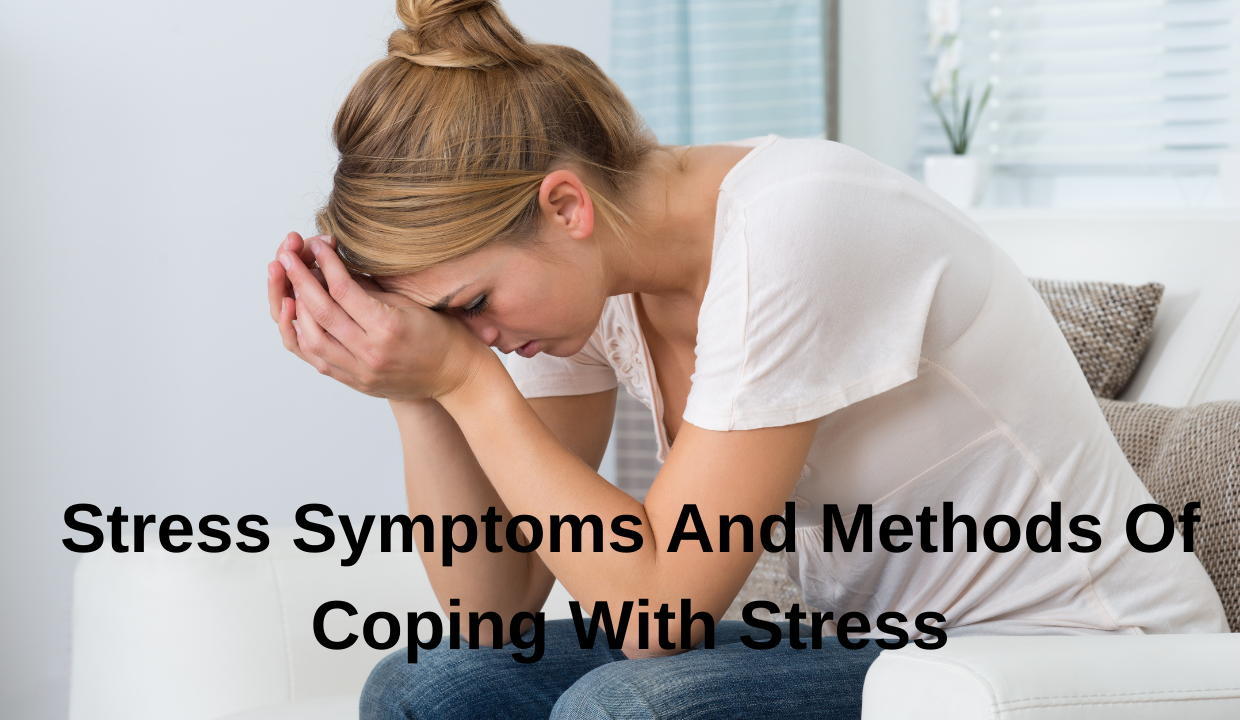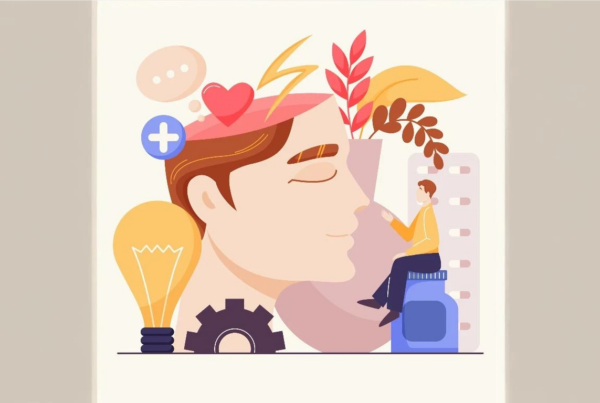Almost everyone faces challenges that can be stressful and overwhelming and cause strong emotions, which is a natural process. When you experience changes or challenges, your body produces physical and mental responses. After these reactions, called stress, your body needs to adapt to new situations.
Stress factors can become a significant problem when they persist without periods of relief or relaxation. The way you react to these factors makes a big difference to your overall health. However, with stress management, you can control your reactions and symptoms and protect yourself from the adverse effects of stress.
What is Stress?
Stress is defined as any change that causes physical, emotional, or psychological strain. Essentially, it is your body’s reaction to anything that requires attention or action.
Stress often creates a negative perception in people because it causes negative consequences by creating distressing emotions; sometimes, it can also have positive effects. Indeed, stress motivates you, forces you to take action, improves your cognitive abilities, helps you become more productive, and prepares you to run away from danger. For example, if you have an important exam, the stress response helps your body work harder and stay awake longer.
Four basic types of stress arise from different causes and vary in duration.
Acute stress:
It can be positive or negative. The most common type of stress we encounter in daily life lasts for a short time.
Chronic stress: The type of stress that seems never-ending and inevitable, such as the stress of a bad marriage or an extremely tiring job. Traumatic experiences can also cause chronic stress.
Episodic acute stress: Acute stress that is widespread seems to be a way of life and always creates a troubled life.
Eustress: Eustress is a fun and exciting type of stress. It has a positive effect that can keep you energized. It is associated with surges of adrenaline, such as when skiing or racing against time to meet a deadline.
Stress can be short-term or long-term. Both can lead to various symptoms.
However, chronic stress can cause severe damage to the body over time and cause long-term health problems.
Symptoms of Stress
Although there are some common symptoms, everyone experiences stress differently. While you may have physical symptoms, someone else may feel more emotional symptoms.
The body’s autonomic nervous system controls your heart rate, breathing, vision, and more. The constant activation of the response to prolonged (chronic) stress causes wear and tear on the nervous system. Therefore, it is of great importance to be aware of these reactions and take precautions when necessary.
Common stress symptoms are as follows:
- Changes in mood,
- Sweating palms,
- Sleep problems,
- Digestive problems,
- Dizziness
- Don’t feel anxious,
- Tension in the neck and shoulder muscles,
- Physical pain
- Accelerated heartbeat.
Apart from these, symptoms of excessive stress can be manifested as physical, emotional, and behavioral symptoms.
Physical symptoms of stress include high blood pressure, jaw clenching, chest tightness, weight change, changes in the menstrual cycle, decreased sexual desire, and problems such as frequent colds and infections due to weakened immune systems.
Behavioral symptoms include changes in eating patterns, lack of personal care, and increased substance abuse.
Memory problems are one of stress’s most common psychological and emotional symptoms. In addition, difficulty in concentration, weakening of judgment, excessive feelings of anxiety and anxiety, increased moodiness and anger, and feeling lonely and overwhelmed are among the psychological symptoms.
It is essential to recognize how stress affects your physical and mental health. Likewise, your psychological and physical state also affects the level of stress. Since these situations are interconnected, you must observe yourself and make changes to eliminate stress.
What Causes Stress?
Stress occurs in three stages: Alarm phase, resistance phase, and exhaustion phase.
The alarm phase is when the central nervous system is stimulated, and your body goes defensive with changes such as increased respiration and tense muscles. This phase usually results in a ‘fight or flight’ response.
The resistance phase is when your body begins to repair itself and normalize activities such as heart rate and blood pressure. After the initial shock of a stressful event, your body enters this recovery phase but remains alert for some time.
The depletion phase occurs when the activation in the first two phases does not disappear over time. This disturbs the balance in your body, and health problems arise.
On the other hand, almost any event can trigger stress. For some people, even thinking about a small event can cause stress. Previous experiences also influence how a person reacts to stressors. Common causes that can trigger stress are as follows:
- Labor issues,
- Retirement,
- Lack of time,
- Losing someone,
- Family problems,
- Illness,
- Change of environment,
- Relationships, marriage and divorce,
- Pregnancy and parenthood,
- Driving in heavy traffic or fear of accidents,
- Excessive noise,
- Overcrowding,
- Uncertainty
Some people may experience constant stress after traumatic events such as accidents or abuse. To cope with this condition, which is called ‘Post Traumatic Stress Disorder,’ it is necessary to seek medical support.
Ways to Cope with Stress
Sometimes, changing your situation is the best way to manage your stress. If you cannot do this, another option is to change your reaction to the problem and take control of it. You cannot escape stress, but you can prevent it from becoming overwhelming by implementing daily strategies.
So, how to relieve stress? By learning stress management, of course. Here are some simple methods you can try to get rid of stress:
- Exercise when you feel the signs of stress coming on. A short walk or jog can improve your mood.
- Take a moment at the end of each day to reflect on what you have achieved, not what you have failed to achieve.
- Try activities such as breathing exercises, yoga, and meditation.
- Take care of your body. Proper diet, exercise, and adequate sleep can help your body cope better with stress.
- Avoid products that can cause substance abuse. These may seem to help you, but they can create additional problems and increase the stress you already feel.
- Accept that you cannot control everything.
- Find ways to stop worrying about situations you cannot change.
- Learn to say ‘no’ to additional responsibilities when you are too busy or stressed.
- Balance work and personal life well. Don’t neglect yourself and your loved ones when you are working hard.
- Communicate with people who calm you down, make you happy, provide emotional support, and help you with practical matters. A friend or family member can be a good listener or share your responsibilities to prevent stress from becoming overwhelming.
- Get at least 7-9 hours of sleep every night. You can relax by meditating for a few hours before going to sleep.
- Manage your time by prioritizing. If you have a deadline tomorrow but need to clean, remember that cleaning can wait another day. Don’t cramp yourself.
- Avoid drinking caffeinated drinks such as tea and coffee more than once a day.
- Consider talking to a therapist or health counselor about your worries.
It is perfectly natural and expected to be stressed sometimes. However, prolonged stress can lead to physical and emotional symptoms and unhealthy behaviors. Try reducing and managing stress with a few simple strategies.
However, seek professional support if these methods do not work and you feel you cannot cope.






